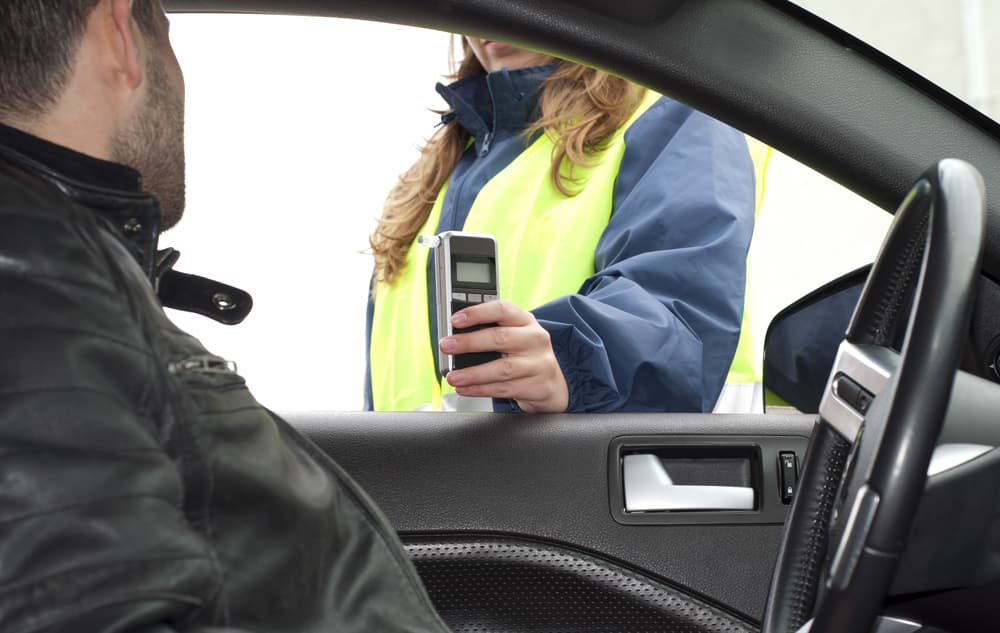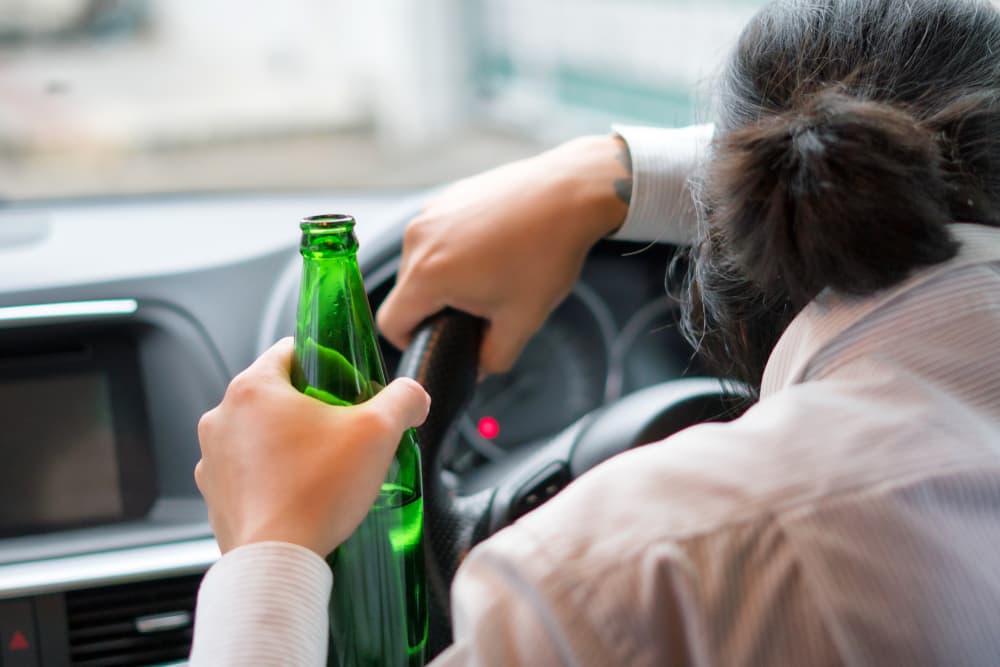Under North Carolina law, your driver’s license is immediately revoked after a DWI arrest. At your initial appearance, the magistrate seizes your physical license and issues a revocation order to the NC DMV. This 30-day civil revocation takes effect according to the date listed on the order, but you may later qualify for limited driving privileges once certain timeframes and conditions are met.
A North Carolina driving while impaired lawyer helps you navigate these confusing revocation periods and protect your driving privileges. Call Cummings & Kennedy Law Firm at (252) 728-1208 today before time runs out.
Schedule Your Free Consultation
Key Takeaways About License Suspension After a DWI
- North Carolina imposes an immediate 30-day civil revocation when you're charged with DWI and have a BAC of .08 or higher (0.04 for commercial licenses) or refuse testing.
- You cannot drive during the first 10 days of the civil revocation, but may obtain limited driving privileges for days 11-30.
- After 30 days, you must pay a $100 civil revocation fee to the Clerk of Court to lift the suspension and retrieve your license.
North Carolina's Immediate Civil Revocation After DWI Arrest
The North Carolina Division of Motor Vehicles automatically revokes a driver's license for 30 days when a person is charged with DWI and has a blood alcohol concentration of 0.08 or higher. This civil revocation happens at your initial appearance before a magistrate, not days or weeks later. The magistrate at the county jail confiscates your license and issues a revocation order on the spot.
Law enforcement officers must have reasonable grounds to believe you committed an implied consent offense like DWI. The pink revocation order they issue serves multiple purposes during this process. This document acts as notice of your revocation while temporarily allowing you to arrange affairs before the full suspension takes effect.
Civil Revocation vs. Criminal Conviction Penalties
North Carolina operates two separate license suspension systems following DWI arrests. Civil revocation occurs through DMV administrative proceedings independent of criminal court outcomes, and dismissal of criminal charges doesn't automatically restore licenses suspended through civil revocation. This administrative action happens regardless of your guilt or innocence in the criminal case.
Chemical test results above .08% BAC or refusal to submit to testing triggers automatic civil revocation. The suspension periods differ significantly between these scenarios, with refusals carrying much harsher consequences.
Standard civil revocation periods under North Carolina General Statute § 20-16.5 include:
- 30 days for first-offense DWI with BAC above .08%
- One year for chemical test refusal regardless of prior record
- Four-year permanent revocation for multiple refusals within seven years
You would only lose your license again as a result of the DWI case if you were convicted.
Timeline of License Revocation After DWI in Eastern North Carolina
First 10 Days: No Driving Allowed

You cannot drive at all during the first 10 days of the civil revocation period. This "hard suspension" period has no exceptions, regardless of employment needs or family obligations. Driving during this period results in Driving While License Revoked charges, adding serious criminal complications to your case.
Your attorney must file appropriate paperwork within 10 days after your license has been revoked to request a hearing challenging the civil revocation. Missing this deadline waives your right to contest the administrative suspension. The hearing focuses on whether officers had probable cause and followed proper procedures.
Days 11-30: Limited Driving Privilege Eligibility
From the tenth day of the revocation to the thirtieth day, you become eligible for a Pretrial Limited Driving Privilege. This privilege allows driving for work and school purposes, plus household purposes Monday through Friday during 6:00 AM to 8:00 PM standard working hours.
The limited driving privilege costs $100 to file with the Clerk's Office and allows you to drive for employment, education, and household maintenance. Courts require specific documentation including employer verification letters and proof of insurance. Household purposes cover necessary transportation like going to the bank, doctor, grocery store, and childcare.
Day 31: Restoration Requirements
After the 30-day suspension period, you can go to the Clerk of Court and pay the $100 civil revocation fee to have your driver's license returned. If the $100 civil revocation fee is not paid, your driver's license will continue to be suspended until payment is made.
The restoration process requires completing several steps:
- Payment of the $100 civil revocation fee at the courthouse
- Verification that no other suspensions exist on your record
- Possible substance abuse assessment depending on circumstances
- Proof of insurance coverage if required
This civil revocation restoration is separate from the pending DWI, and a conviction at a later time will have other penalties including a separate and longer driver's license suspension.
Schedule Your Free Consultation
Breathalyzer Refusal and License Consequences in North Carolina
If you refuse to submit to a breath or blood test under the implied consent laws, your license is typically suspended for one year. This refusal revocation operates independently from any criminal proceedings. The willful refusal to take a breath or blood test serves as separate grounds for license revocation beyond the DWI charge itself.
If you don’t challenge the civil revocation at a hearing, it will stay on your North Carolina driving record permanently, even if you are later found not guilty of the DWI or the charges are dropped. It is especially hard to fight a revocation for refusing a test because the officer only has to show there was probable cause and that you were properly advised about implied consent.
How Cummings & Kennedy Protects Your North Carolina Driving Privileges

Attorney Joe Kennedy understands the urgency of preserving driving privileges after DWI arrests throughout Carteret County. His prosecutorial background reveals how DMV hearing officers evaluate evidence differently than criminal court judges. We move immediately to request administrative hearings within the strict 10-day deadline and gather evidence supporting privilege restoration.
Our team recognizes that losing transportation affects employment, family obligations, and daily necessities. We pursue every available option for maintaining or restoring driving privileges while criminal cases proceed through the court system.
Challenging Civil License Revocation Hearings
You have the right to challenge the civil revocation in an administrative hearing, which is separate from the DWI criminal trial and must be requested within 10 days of the notice of civil revocation. DMV hearings require different strategies than criminal trials since hearing officers focus solely on probable cause and procedural compliance.
We examine calibration records, officer certifications, and observation period compliance. Any violation of mandated testing procedures invalidates the suspension, creating a ripe area for challenging the suspension by filing for a DMV hearing. Our preparation includes obtaining maintenance logs, training records, and video evidence before hearing dates.
Securing Limited Driving Privileges
North Carolina law permits restricted driving privileges after serving the initial 10-day hard suspension period. An attorney can petition the court for a limited driving privilege to drive to work and for essential household purposes. Judges maintain discretion based on your specific circumstances and driving history.
Standard hours for a limited driving privilege are Monday through Friday, 6 am to 8 pm, though work letters from employers can extend these hours if needed. The application requires a DL123 form from your insurance company establishing proper coverage. Strategic preparation of these documents maximizes your chances for approval.
FAQs for North Carolina Driving While Impaired Lawyers
What happens if I drive during the first 10 days of civil revocation?
Operating a vehicle after a DUI charge on a revoked license may result in criminal charges for Driving While License Revoked - Impaired Revocation, which is a serious criminal charge in North Carolina. This additional charge complicates your defense and carries separate penalties.
Can I challenge the civil revocation if I wasn't actually arrested?
You need not be formally arrested for the Implied Consent laws to apply - simply being charged with DUI/DWI may be enough under the law. A uniform citation triggers the same civil revocation process as a formal arrest.
Does the civil revocation appear on my driving record permanently?
The civil revocation will show on a driving record even if you are found not guilty of the DWI or if the DWI charge is dismissed, unless successfully contested at a hearing. If successfully challenged, the civil revocation will not appear on your driving record in the future.
Protect Your Driving Future Starting Now

Every day matters when fighting license revocation after a DWI arrest in North Carolina. The strict 10-day deadline to challenge your civil revocation and complex requirements for limited driving privileges demand immediate action.
Cummings & Kennedy Law Firm combines aggressive advocacy with strategic timing to protect what matters most. Call (252) 728-1208 immediately to start building your defense before these critical deadlines pass.